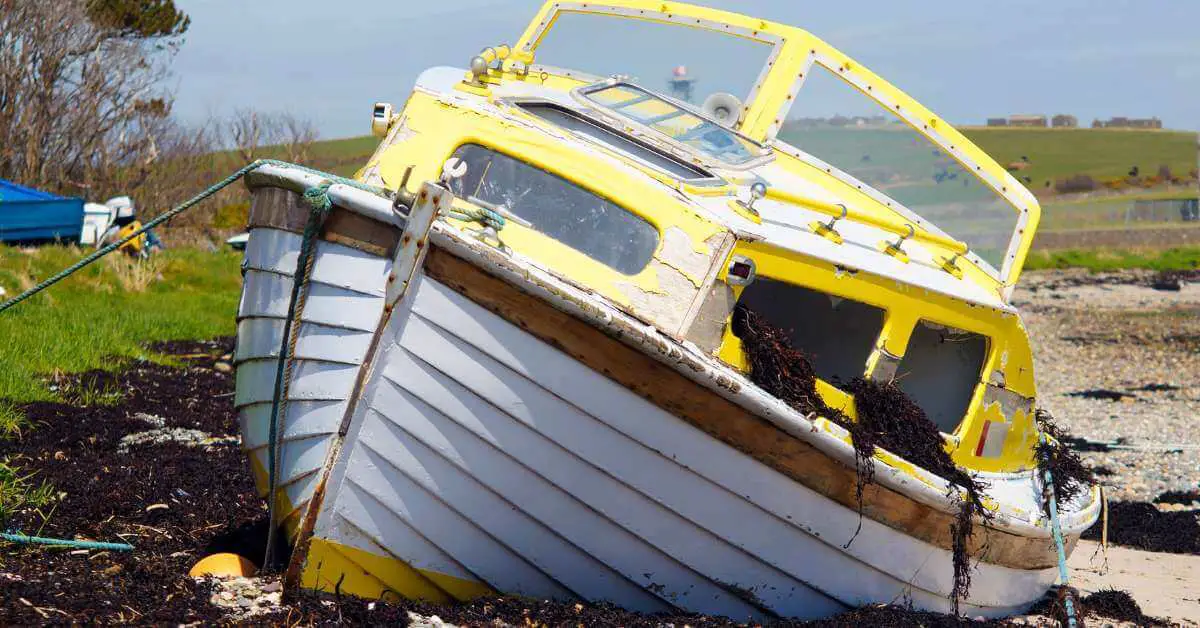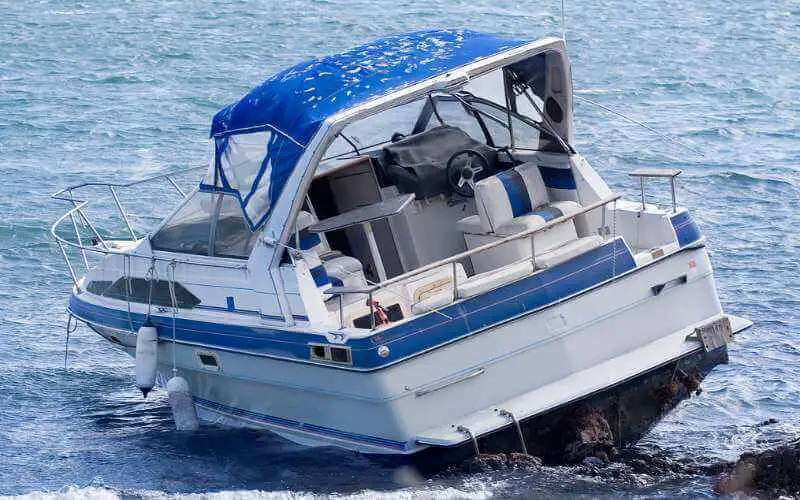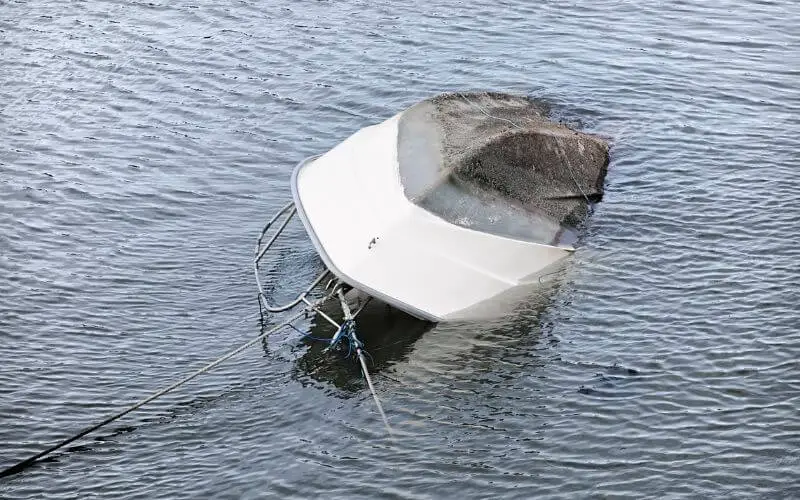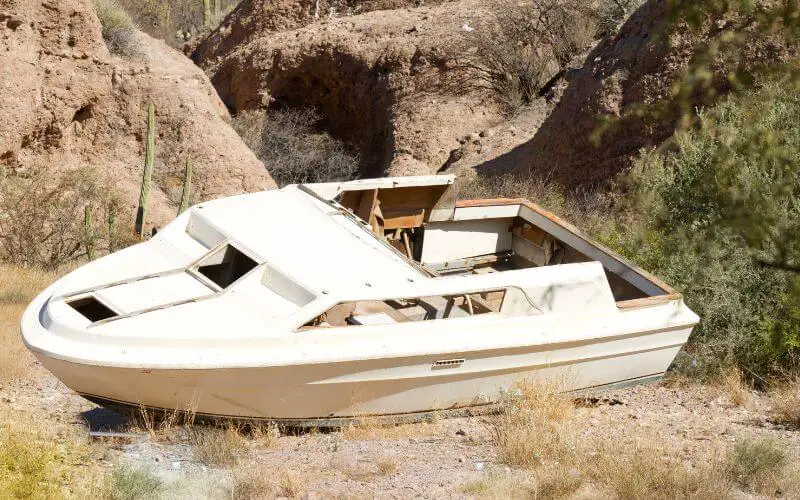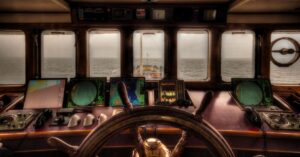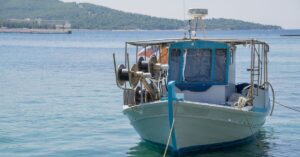Boating accidents can have devastating consequences, and it is essential to understand the common causes behind them to prevent future mishaps. Boating accidents include vessel loss, property damage, injuries, missing individuals, and death.
This article will delve into the factors contributing to boating accidents, providing valuable insights and practical tips to stay safe on the water. So, let’s set sail on this journey of uncovering the common causes of boating accidents and discovering how they can be prevented.
Common Causes of Boating Accidents
While boating can be a delightful recreational activity, it’s important to remember that there are risks involved, and unfortunately, boating accidents do happen. Understanding boating accidents can help us stay vigilant and ensure our safety on the water. The most frequent causes of recreational boating accidents are:
Excessive Speed
Excessive speed is undeniably one of the contributing factors to boating fatalities. Like on the roads, the operator’s reaction time is significantly reduced when a boat travels at high speeds.
This decrease in response time can make it challenging to avoid obstacles, react to sudden changes in the environment, or take corrective actions in case of an emergency. The severity of accidents can also increase exponentially when speed is a factor, leading to devastating consequences.
When boating at excessive speeds, the boat becomes less maneuverable, making it difficult for the operator to control the vessel and navigate safely. Additionally, high speeds can lead to collisions with other boats, swimmers, or stationary objects. Even minor collisions can have severe consequences, including injury, drowning, or loss of life.
Operator Inattention
Operator inattention is a leading cause of boating accidents that can result in tragic outcomes. Whether due to distractions, fatigue, or lack of focus, operator inattention can significantly increase the risk of collisions and other dangerous incidents on the water. Many boaters underestimate the dangers of not paying attention while operating a vessel, leading to devastating consequences.
Distractions come in many forms and can be equally dangerous when operating a boat. Operator inattention, such as engaging in non-boating activities, chatting with passengers, or using electronic devices, diverts the operator’s attention from navigation and potential hazards.
A momentary lapse in attention can lead to a life-altering accident, emphasizing the need for operators to stay focused and always be aware of their surroundings.
Operator Inexperience
Boat operators need to understand the basics of boating and navigation rules. And they also need to be prepared to handle emergencies. An inexperienced boat operator may not possess the necessary skills and knowledge to handle unexpected situations.
For example, they may not know how to react to sudden engine failure, navigational hazards, or changing weather conditions. Their lack of experience and training in these critical moments can lead to tragic outcomes.
Determining the operator’s experience level before getting into a boat is crucial. Ask questions about their boating history and training. Discover whether they have completed safety courses or obtained any certifications. Additionally, if the operator appears unsure or needs more confidence when discussing their boating skills, it is a warning sign of inexperience.
Alcohol Use and Drug Impairment
Alcohol use can be a factor in boat accidents resulting in death or serious injury. Drug impairment is also a significant and preventable factor in boating accidents. Alcohol impairs judgment, coordination, and reaction time, making it more difficult for boat operators to make sound decisions.
Consuming alcohol onboard impairs these essential cognitive abilities and increases the risk of accidents caused by operator inattention and improper lookout. Blood alcohol content (BAC) laws are the same for boaters and drivers. Operating a boat with a BAC greater than 0.08 is a criminal offence.
Statistics reveal a concerning truth about the connection between alcohol consumption and boating accidents. According to the United States Coast Guard recreational boating statistics report, alcohol played a role in nearly one-third of all boating fatalities in the United States.
These incidents could have been prevented if the operators had refrained from consuming alcohol or designated a sober individual to assume control.
Hazardous Waters
The unpredictable nature of the water can pose significant challenges for even the most experienced boat operators. Hazards like rough weather conditions, choppy waters, and strong currents demand exceptional navigation skills and the ability to adapt to changing circumstances.
Inexperienced operators unfamiliar with these challenges may quickly be overwhelmed, increasing the likelihood of accidents and unfortunate outcomes.
Drowning
In its 2020 Recreational Boating Statistics Report, the US Coast Guard reported that drowning was responsible for death in 75 percent of all boating fatalities.
Drowning, unfortunately, is the leading cause of death in boating accidents. It is a tragic end that could have been prevented with the proper safety measures. Every year, numerous lives are lost due to serious boating accidents on the water, leaving families and communities mourning.
One of the significant factors contributing to drowning in boating accidents is the lack of life jacket usage. Many boaters underestimate the importance of always wearing a life jacket while on a boat. A life jacket can make all the difference between life and death in an accident or falling overboard.
Faulty Equipment
While alcohol may be a primary cause of boating fatalities, we cannot overlook the significant role that faulty equipment plays in these tragic accidents. Mechanical failures can quickly turn a pleasant day on the water into a nightmare.
One common type of mechanical failure is electrical short circuits. A faulty wiring system or a malfunctioning electrical component can spark a fire, putting everyone onboard in immediate danger.
These fires can spread rapidly, leaving little time for escape or effective firefighting. Another frequent cause of accidents is engine failure. A malfunctioning engine can result in a loss of power, leaving the boat adrift and vulnerable to crashing into other vessels, rocks, or land.
Bad Weather Conditions
Regarding boating accidents, bad weather conditions can significantly contribute to the risk and danger of the water. Navigating through hazardous waters and adverse weather requires extra caution and preparation. Before setting sail, boaters must check local weather reports to ensure they know of potential weather changes or warnings.
Bad weather conditions can significantly increase the chances of boating accidents. Heavy rain, strong winds, and rough waters can make it challenging to maintain control of the boat and navigate safely. By going out in poor weather conditions, there is a higher risk of a boating accident. The risk of boating accidents that results in death is significantly higher in these conditions.
Negligence and Recklessness
Negligence
This plays a significant role in boating accidents, often stemming from a failure to adhere to safety guidelines and exercise caution on the water. Negligent behavior can devastate operators, passengers, and other nearby individuals.
One common form of negligent behavior is the failure to follow safety guidelines. Boaters may neglect to wear life jackets, which can be especially hazardous in emergencies. Additionally, ignoring speed limits and operating at excessive speeds is another example of negligence that can lead to accidents.
Injuries resulting from negligence in boating accidents are often severe, including drowning, head injuries, spinal cord injuries, and propeller strikes.
Recklessness
Recklessness plays a significant role in boating accidents, often contributing to tragic outcomes on the water. Reckless behavior involves disregarding safety guidelines and a lack of consideration for the well-being of oneself and others. It encompasses a range of actions, each posing significant risks in boating environments.
One hazardous form of recklessness is driving under alcohol or drugs. Impaired judgment and diminished reaction times can lead to catastrophic accidents.
Additionally, ignoring weather warnings and venturing into adverse conditions is a reckless choice that can have dire consequences. Rough waters, high winds, and limited visibility results in collisions with other vessels and increase the likelihood of capsizing.
Examples of reckless actions in boating include:
- Performing dangerous stunts.
- Neglecting essential safety equipment like life jackets.
- Allowing inexperienced individuals to operate water vessels.
These actions jeopardize the safety of those directly involved and pose a risk to other boaters and innocent bystanders.
Preventing Boating Accidents: Safeguarding Your Boating Experience
1. Education and Training
One of the most effective ways to prevent boating accidents is by obtaining proper education and training. Take a boating safety course to familiarize yourself with the rules and regulations, navigation techniques, emergency procedures, and general boating knowledge.
2. Wear Life Jackets
Wearing a life jacket is crucial for all individuals on board, regardless of age or swimming ability. Ensure that the life jackets are Coast Guard-approved and properly fitted for each person.
3. Designated Sober Operator
Never operate a boat under the influence of alcohol or drugs. Designate a sober operator responsible for navigating the boat, ensuring the safety of everyone on board.
4. Follow Navigation Rules
Familiarize yourself with the “Rules of the Road” for boating, which include guidelines for right of way, overtaking, and passing other vessels. Boat operators should always be observant of navigational buoys, markers, and signage to stay on the designated course.
5. Regular Maintenance
Regularly check and maintain the engine, electrical systems, fuel lines, steering mechanisms, and other critical components of your boat. A well-maintained boat reduces the risk of breakdowns, engine malfunctions, and other accidents caused by mechanical failures.
6. Weather Awareness
Always check weather conditions before heading out. Keep a radio or other means of receiving weather updates on board, and be prepared to change plans or seek shelter if adverse weather conditions arise.
7. Stay Alert and Be Mindful of Surroundings
Avoid distractions such as cell phones or loud music, as these can impede your ability to recognize potential dangers. Stay focused and attentive to the surroundings while maintaining a safe speed.
8. Emergency Preparedness
Equip your boat with essential safety gear, including fire extinguishers, flares, first aid kits, and a throwable flotation device. Familiarize yourself with the operation of these items and ensure they are easily accessible in case of an emergency. Additionally, have a plan in place to reach the shore or contact authorities in case of a serious incident.
What to Do if You Have a Boating Accident
Unfortunately, accidents can occur even with all the necessary precautions in place. If you find yourself injured in a boating accident, knowing the steps you need to take to protect your rights and interests is essential. One of the first steps you should consider is seeking legal counsel from a reputable boating accident lawyer.
Step 1: Seek Immediate Medical Attention
First and foremost, ensure that everyone involved receives immediate medical assistance. Not all injuries are visible, and some may have delayed symptoms. Consulting with medical professionals is crucial to your health and well-being.
Step 2: Report the Accident
After ensuring everyone’s safety, report the incident to the relevant authorities per your area’s regulations. This record becomes important evidence should you decide to pursue a personal injury claim.
Step 3: Document the Incident
Capture photographs of the accident scene, your injuries and, if possible, the cause of the accident. Collect names and contact information of witnesses. This documentation will be useful in the legal process to establish the chain of events and severity of the injuries.
Step 4: Consult with a Boating Accident Lawyer
Legal guidance is crucial in navigating the aftermath of a boating accident. A boating accident lawyer can help you understand your rights, responsibilities, and next steps. Schedule a consultation with a reputable law firm specializing in boating and personal injury cases. These legal professionals have the expertise to analyze the complexities of the accident and determine if negligence played a role.
Step 5: Understand the Cause of Boating Accidents
Understanding the cause of boating accidents is essential in establishing who is at fault. Causes include boat owners’ negligence, equipment failure, or even hazardous waterway conditions.
Step 6: File a Personal Injury Claim
If the evaluation reveals you were injured in a boating accident due to someone else’s negligence, your boating accident lawyer will assist you in filing a personal injury claim. Compensation resulting from such claims can cover medical expenses, lost income, pain and suffering, among other damages.
Conclusion
Boating accidents often occur for various reasons, however, they can be significantly reduced or even avoided through appropriate knowledge and safeguards.
By understanding the common causes of boating accidents, such as operator inexperience, alcohol consumption, and equipment failure, individuals can take proactive steps to ensure their safety and the safety of others on the water.
Implementing safety measures such as wearing life jackets, being mindful of your surroundings, maintaining proper boat maintenance, and staying educated through boating safety courses are vital in preventing accidents. Additionally, it is crucial always to have a sober and responsible operator at the helm.
By maintaining vigilance and awareness, we can traverse the waters with confidence, ensuring that all journeys conclude without any incidents. So, let’s commit ourselves to the values of responsible boating and venture into a future where water-based accidents are eliminated.
Reference

